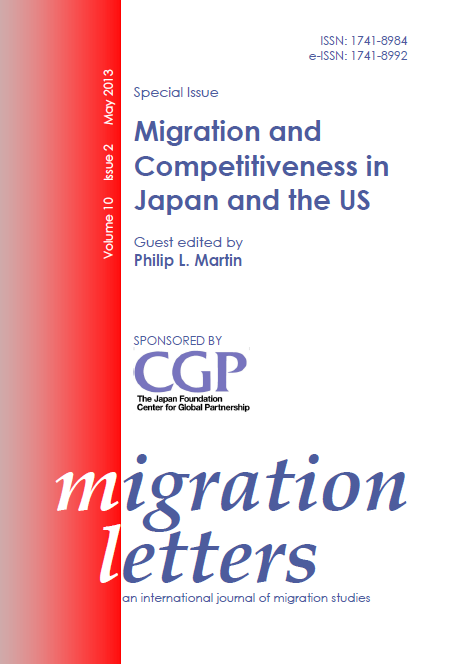Healthcare: The case of Japan
Healthcare: The case of Japan
Author(s): Jun InoueSubject(s): Health and medicine and law, Family and social welfare, Migration Studies
Published by: Transnational Press London
Keywords: Aging population; staff shortage; inbound and outbound businesses; Economic Partnership Agreement (EPA); language support;
Summary/Abstract: Japan requires all of the healthcare practitioners to be qualified by national examinations and to be fluent in Japanese. Consequently, the number of immigrant workers remains very low, although Japan is faced with staff shortage. Even under the special bilateral arrangement that allows nurses and certified care workers from Indonesia and Philip-pines to practice temporally, there are very few who passed the Japan’s national examination: it is difficult for them to read technical terms written in Japanese, especially written in Chinese characters (Kanji). In care subsector, where wage is lower than physicians and nurses and qualifications/licenses are not necessarily required, the number of employed foreign-born residents is rapidly increased. Some local governments have started to sup-port them to complete language and care-work courses. These facts show that language support is necessary if Japan considers that matching local staff demands is important for competitiveness. If Japan considers that development of inbound and outbound business leads to competitiveness, it is necessary for Japan to introduce systematic ef-forts to bring up foreign-born staffs, but language fluency requirement is not necessary in accepting foreign-born workers.
Journal: Migration Letters
- Issue Year: 10/2013
- Issue No: 2
- Page Range: 191-209
- Page Count: 19
- Language: English

